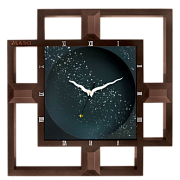Japanese poetry
Japan has a very rich history of poetry. Japanese poems are known as wakas which literally means “Japanese poems.” Japanese poems are known for both their profound simplicity and the deep emotional connections to their readers.
The history of Japanese poems stretches far back into history.
The most famous type of Japanese poem is the haiku. Today’s haiku are very short poems that consist of seventeen syllables. The original haiku were much longer where they used to be around 100 verses.
The tanka is older than the haiku but not nearly as well-known. Tanka used to be written after every major event in Japanese history and tended to be longer than the haiku. Tanka poems were written almost exclusively about feelings.
Then there is the renga. This format was developed so that two poets could create a poem at the same time. The two poets write in alternating sections, combining them until the poem was complete. Writing renga poems was actually treated as a game.
And then there is the jisei, the Japanese Death Poem. The Japanese believes that when a person reflects back on life near the moment of death, the mind will be able to form a clear, lucid, meaningful, observation about that existence. This observation becomes a poem and it is seen as a gift to the person’s friends and family. Jisei placed emphasis on symbols that the Japanese associated with death such as the western sky, the full moon, or even images of the season in which the composer died.
Japanese poems are some of the most complex poems in the world and at the same time, they’re incredibly simple. Most poems focus on the world itself with themes like nature’s beauty, life and death, or things that are important to humans. They are meant to highlight the beauty of life.




